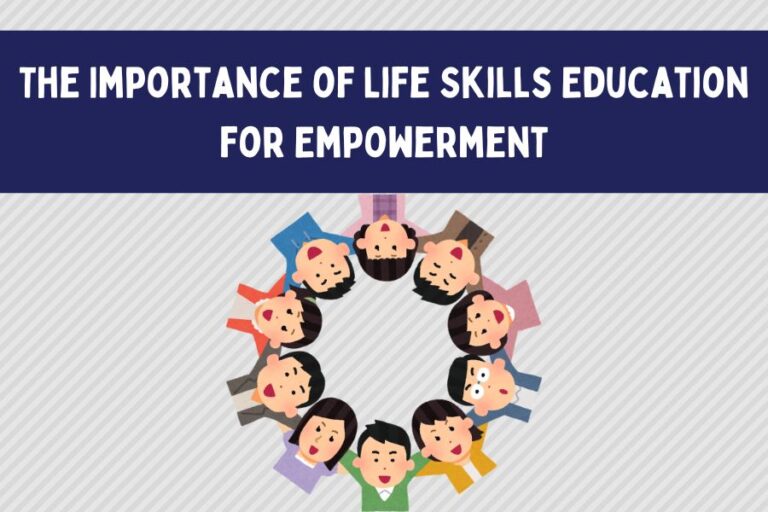Life skills education is a crucial aspect of personal development, shaping individuals to navigate challenges with confidence and resilience. From effective communication to critical thinking, mastering these skills equips people to lead fulfilling lives. In today’s world, where societal dynamics are evolving rapidly, life skills education has gained recognition as a cornerstone for personal and professional growth.
What Are Life Skills?
Life skills encompass a broad range of abilities that enable individuals to handle life’s challenges effectively. These include:
- Communication Skills: Expressing ideas clearly and understanding others.
- Problem-Solving: Tackling issues with logical and creative approaches.
- Emotional Intelligence: Managing emotions and fostering healthy relationships.
- Decision-Making: Making informed choices in personal and professional contexts.
Embedding life skills in education is a step toward building a more resilient and capable society.
Read Also>>> How to Transfer Hotmail Emails to Office 365 Account? A Simple Guide
Promoting Women’s Empowerment Through Life Skills
Empowering women with life skills is a key driver of social progress. One vital aspect is the Importance of Self-Defense for Women’s Safety, which underscores the need for women to be equipped with physical and mental tools to protect themselves. Teaching women self-defense builds confidence and ensures their safety in challenging situations.
Moreover, incorporating life skills in education helps women manage their careers, health, and relationships effectively. From financial literacy to emotional intelligence, these competencies can make a significant impact on their personal growth.
Life Skills in Schools – A Foundation for the Future
Schools play a pivotal role in shaping young minds, making them the ideal environment for teaching life skills. A curriculum that integrates life skills not only enhances academic knowledge but also prepares students for real-world challenges. For instance:
- Conflict Resolution: Helping students resolve disputes peacefully.
- Teamwork: Encouraging collaboration and mutual respect.
- Stress Management: Teaching techniques to handle academic and personal pressures.
Life skills education, coupled with awareness initiatives like Girls Menstrual Education Empowerment – Hygiene Management, ensures that girls are not only educated but also equipped to manage their health and well-being with dignity and confidence.
How Life Skills Education Reduces Social Issues
Life skills education addresses several societal challenges by fostering awareness and responsibility. For example:
- Reducing Gender Inequality: By teaching young boys and girls mutual respect and equal participation.
- Curbing Addiction: Educating youth on decision-making helps them avoid substance abuse.
- Promoting Financial Independence: Skills like budgeting and saving are vital for economic empowerment.
Such education is transformative, leading to a more equitable and inclusive society.
Read Also>>> Can Wireless Earbuds Handle Calls and Music Seamlessly?
Integrating Digital Tools in Life Skills Education
In the digital age, technology has become a valuable asset in life skills education. From online courses to interactive apps, students can now learn critical skills anytime and anywhere. Key areas where digital tools make an impact include:
- Communication Training: Interactive platforms for language and communication skills.
- Mental Health Awareness: Apps providing stress management techniques and emotional support.
- Health Education: Digital programs focusing on personal hygiene and well-being.
Community Role in Promoting Life Skills
Communities are pivotal in nurturing life skills among their members. Community centers, NGOs, and local initiatives can conduct workshops on self-awareness, leadership, and practical skills. For instance, sessions on self-defense or menstrual hygiene empower individuals and eliminate taboos.
Community efforts must also focus on fostering inclusivity, ensuring that marginalized groups have access to life skills education.
Conclusion: Life Skills as a Pathway to Empowerment
Life skills education is not just an academic concept but a necessity for individual and societal growth. By emphasizing skills like self-defense, menstrual hygiene education, communication, and decision-making, we empower people to lead independent and successful lives.
As educational institutions, communities, and governments collaborate to promote life skills education, we move closer to building a society where every individual is equipped to face challenges with confidence and dignity.

